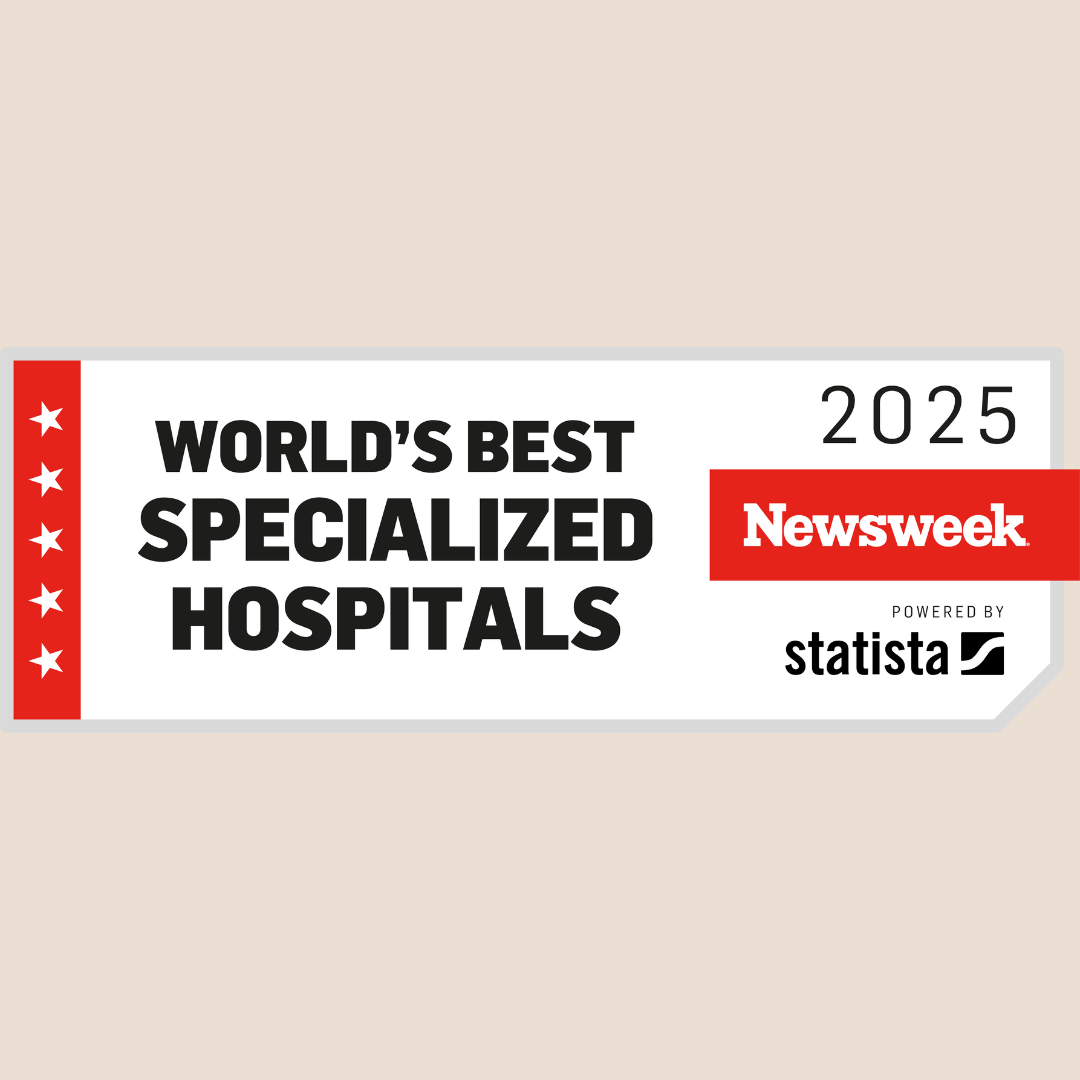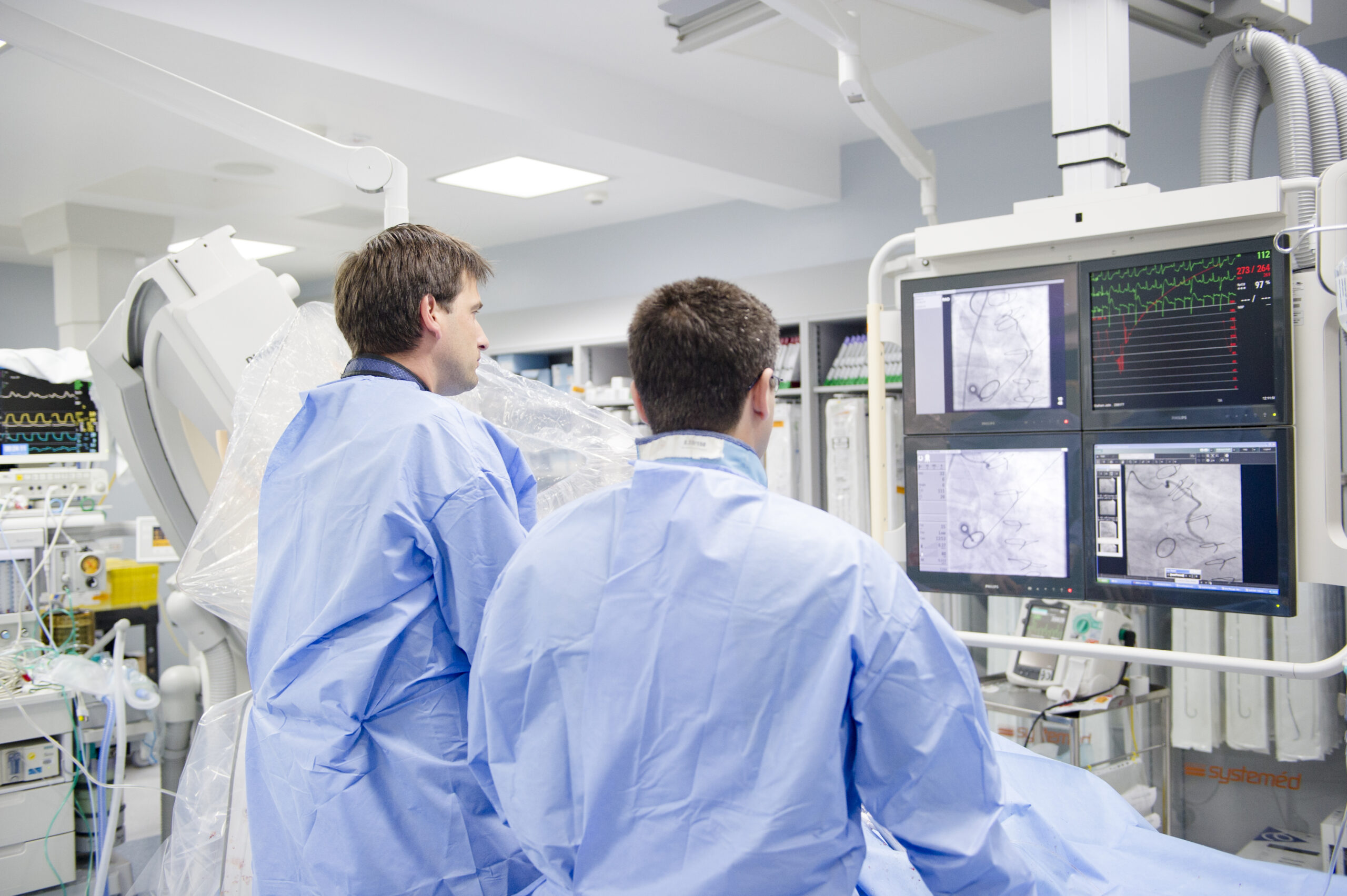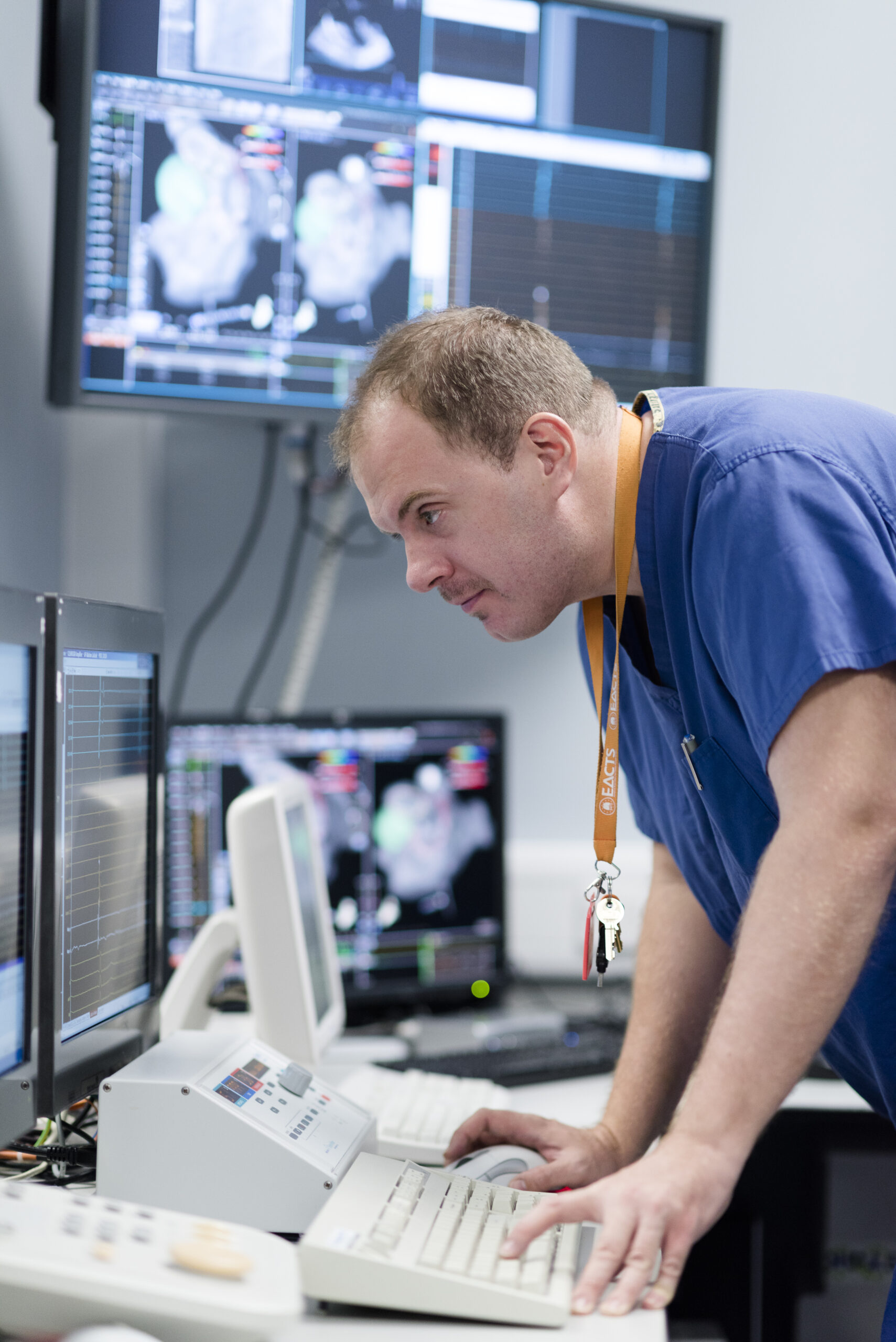Our specialists at Royal Brompton and Harefield hospitals are continuously innovating in minimally invasive cardiology procedures and improving care delivery.
World-leading expertise in cardiology
Royal Brompton and Harefield hospitals have both been ranked as some of the world’s best centres for heart care by US Newsweek, the American weekly news magazine.

Transcatheter valve repair and replacement
We are a leading centre for minimally invasive transcatheter (via a blood vessel) procedures to repair or replace damaged heart valves:
- TAVI procedure for aortic valve replacement.
- Mitraclip procedure for mitral valve repair.
- Triclip and Pascal procedures for tricuspid valve repair.
These bring symptomatic improvements to patients that otherwise may not be suitable for open-heart surgery.

Advanced heart rhythm treatments
We’re experts in managing the most complex heart rhythm problems. Our cardiologists perform a range of cardiac ablation techniques (procedures that scar heart tissue to block irregular electrical signals) as well as advancing leadless pacemaker technologies. In fact, we have been awarded as a ‘Centre of Excellence’ by the Arrythmia Alliance for our work in this field.
Innovative care for coronary heart disease
Shockwave IVL is an innovative transcatheter technology to treat more advanced forms of coronary heart disease. Co-developed with our consultants, it uses sound waves to break down calcium in the walls of stiff coronary arteries to make treatment more effective.

Minimally invasive aortic repair
Our experts are pioneers in minimally invasive treatments for thoracic aortic dissection and aortic aneurysms, including the TEVAR procedure. This procedure utilises a stent graft to reinforce or repair a weakened aorta, providing an alternative to open heart surgery.
We are one of the few centres that can treat aneurysms in the thoracic ascending aorta, aortic arch and descending aorta using the TEVAR approach.
Our specialists also pioneered the FLIRT procedure which is a minimally invasive approach to treat recurring and problematic tears in the aorta following previous interventions.
Congenital heart disease
Our adult congenital heart disease unit at Royal Brompton Hospital was the first of its kind in Europe and remains the largest. With our expertise in fetal and paediatric congenital heart disease at both Royal Brompton and Evelina London Children’s hospitals, we can provide heart care from before birth to later in life.

Sports cardiology
Our Sports Cardiology Service at Royal Brompton and Harefield hospitals is internationally renowned and provides heart care to professional and recreational athletes of any age.
Our multidisciplinary team of cardiology, cardiac surgery and imaging specialists work together to diagnose and treat all heart problems that can affect exercise performance.

Cardio-oncology
Cardio-oncology is the field of heart care in cancer patients. Unfortunately, life-saving cancer treatments can harm the heart and circulatory system. Our heart specialists work to monitor and protect the health of cancer patients during treatment, preventing problems from occurring.
Royal Brompton Hospital has been recognised as a ‘Gold Class Centre of Excellence’ by the International Cardio-Oncology Society.
Heart failure
Heart failure, where the heart becomes less effective at pumping blood around the body, affects approximately 1 million people in the UK. It can be caused by a heart attack, but also coronary heart disease, heart valve disease and heart rhythm problems.
Our experts can treat all types of heart failure to help slow down disease progression, including the implantation of a ventricular assist device (VAD) for severe heart failure.
Conditions
-
Angina
Angina is chest pain that typically comes on during exertion or at times of stress.
-
Aortic aneurysm
Aortic aneurysm occurs when a part of the aorta becomes weak and becomes enlarged.
-
Aortic disease
Aortic stenosis is a narrowing of the aortic valve opening, restricting blood flow to the aorta.
-
Aortic dissection
Aortic dissection is when the aorta tears causing blood to rush through.
-
Aortic regurgitation
Aortic regurgitation is when the valve blood leaks back into the heart through the valve.
-
Aortic stenosis
Aortic stenosis is a disease that affects the main outlet valve of the heart and is the third most common cardiovascular disease.
-
Congenital heart disease
Congenital heart disease is a collective term for a range of birth defects that affect the heart. Learn more about how it is diagnosed and treated.
-
Coronary heart disease
Coronary heart disease is caused by the narrowing of the coronary arteries that supply the heart muscle with oxygen-rich blood.
-
Heart failure
Heart failure occurs when the heart stops being able to pump blood around the body in an efficient way.
-
Left ventricular outflow tract obstruction (LVOTO)
Left ventricular outflow tract obstruction (LVOTO) is a recognised feature of hypertrophic cardiomyopathy.
Treatments
-
Cardiac ablation
Cardiac ablation is an advanced procedure used to treat irregular and fast heart rhythms.
-
Coronary angioplasty
Coronary angioplasty is a procedure that improves blood flow to your heart.
-
Coronary artery bypass grafting (CABG)
CABG bypasses the narrowed sections of your arteries to improve blood flow.
-
Coronary sinus reducer
Coronary sinus reducer implantation treats uncontrolled or refractory angina.
-
Pacemakers and implantable cardioverter defibrillators (ICDs)
Pacemakers and ICDs are different types of implanted electronic devices that are capable of regulating heart rhythm disturbances.
-
Thoracic endovascular aortic repair (TEVAR) procedure
TEVAR uses a stent-graft to reinforce and repair a weakened section of the aorta.
-
Transcatheter aortic valve implantation (TAVI)
TAVI is a minimally invasive procedure where a new aortic valve is inserted into your heart.
-
Heart valve repair or replacement
Heart valve surgery can repair or replace a damaged valve.
Investigations
-
Cardiac catheterisation (coronary angiogram)
Cardiac catheterisation uses x-rays and a dye to take detailed pictures of the arteries.
-
CT coronary angiography scan
A CT (computerised tomography) coronary angiography is a type of scan that shows the structure of the heart and the arteries which supply blood to the heart.
-
Cardiac MRI scan (CMR)
A cardiac magnetic resonance (CMR) scan is non-invasive and shows detailed images of your heart.
-
CT scan
A CT uses X-rays and a computer to produce images of many structures inside the body.
-
Echocardiogram
An echocardiogram – also known as an echo – is a scan that examines the heart and surrounding blood vessels.
-
Electrocardiogram (ECG)
An electrocardiogram (also known as an ECG) is a test which is used to check your heart’s rhythm and electrical activity.
-
Exercise stress test
An exercise stress test assesses how the heart is working during physical activity.
-
PET-CT and nuclear medicine
PET-CT and nuclear medicine scans use small amounts of radioactive material to diagnose a variety of diseases.
Locations
Our cardiologists provide care at these locations:
Discover our cardiology experts
Our cardiologists are world-leading experts who offer the latest and most innovative treatments, supported by an experienced multi-disciplinary team, to ensure you receive the right treatment for you
